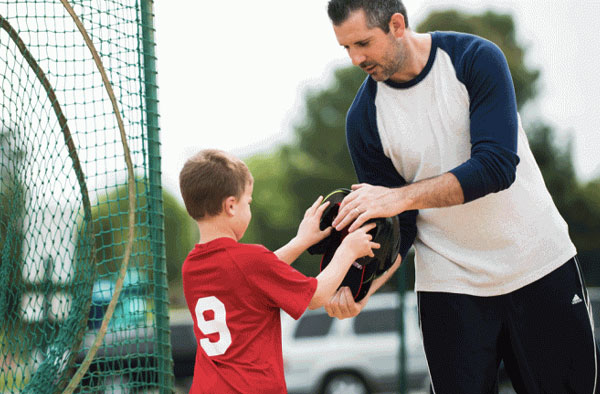The time has come; your child is interested in pursuing a sport. Maybe you have been waiting for this moment for a long time and you are excited to be able to connect over your passion for sports. Perhaps you are nervous about navigating involvement in your child’s athletics without putting too much pressure on them or turning them off from wanting to engage in sports altogether.

In this article, we will explore some strategies that can help you to support your young athlete. Positive experiences in sports can enhance your child’s growth and development, extending to all areas of their life.
For more articles and information about parenting and family relationships, visit https://www.betterhelp.com/advice/parenting/.
4 Parenting Tips for Raising Young Athletes
- Engage in open communication about your child’s desires and goals when it comes to athletics. It is crucial to ensure that your child is at the center of decision making when it comes to athletics. Allow them to decide what activities they would like to participate in without putting pressure on them to select a certain one. Understand that at some point, your child may choose to switch focuses onto another sport or activity, and this is okay. Refrain from imposing your own wishes and dreams on your child, and encourage them to set their own goals.
- Provide positive encouragement and unconditional support. It can be tempting at times to become critical of our child’s performance, especially if we have insight from our own experience with a sport. While you can provide gentle feedback, aim to focus most of your attention on what your child is doing well. Provide positive reinforcement and celebrate when your child meets one of their goals. Regardless of athletic achievement, provide unconditional, unwavering support for your child and their efforts.
- Redefine what ‘winning’ and ‘success’ looks like. Talk to your child about redefining ideas of ‘winning’ and ‘success’. Regardless of wins and losses, or how your child performs, did they go out there and give it their best even in the face of fear? Did they keep playing even when they felt disappointed? Let your child know that showing up and being brave, regardless of the outcome, is always a ‘win’. Help your child to understand that making mistakes is not a sign of failure, but a part of the experience of giving themselves to something wholeheartedly.
- Aim to help your child maintain a healthy balance between sports and other areas of life. As you support your child in pursuing their athletic goals, do your best to facilitate their growth in other areas as well. Support them in prioritizing their academics and establishing a healthy social life. Do not limit them by labeling them ‘the athlete’ but encourage them to explore other areas of interest as well, and develop their identity outside of sports. It is also important to be aware of the signs of burnout and overtraining and intervene if they think your child may be pushing themselves too hard or headed towards burnout.

Marie Miguel has been a writing and research expert for nearly a decade, covering a variety of health-related topics. Currently, she is contributing to the expansion and growth of a free online mental health resource with BetterHelp.com. With an interest and dedication to addressing stigmas associated with mental health, she continues to specifically target subjects related to anxiety and depression.